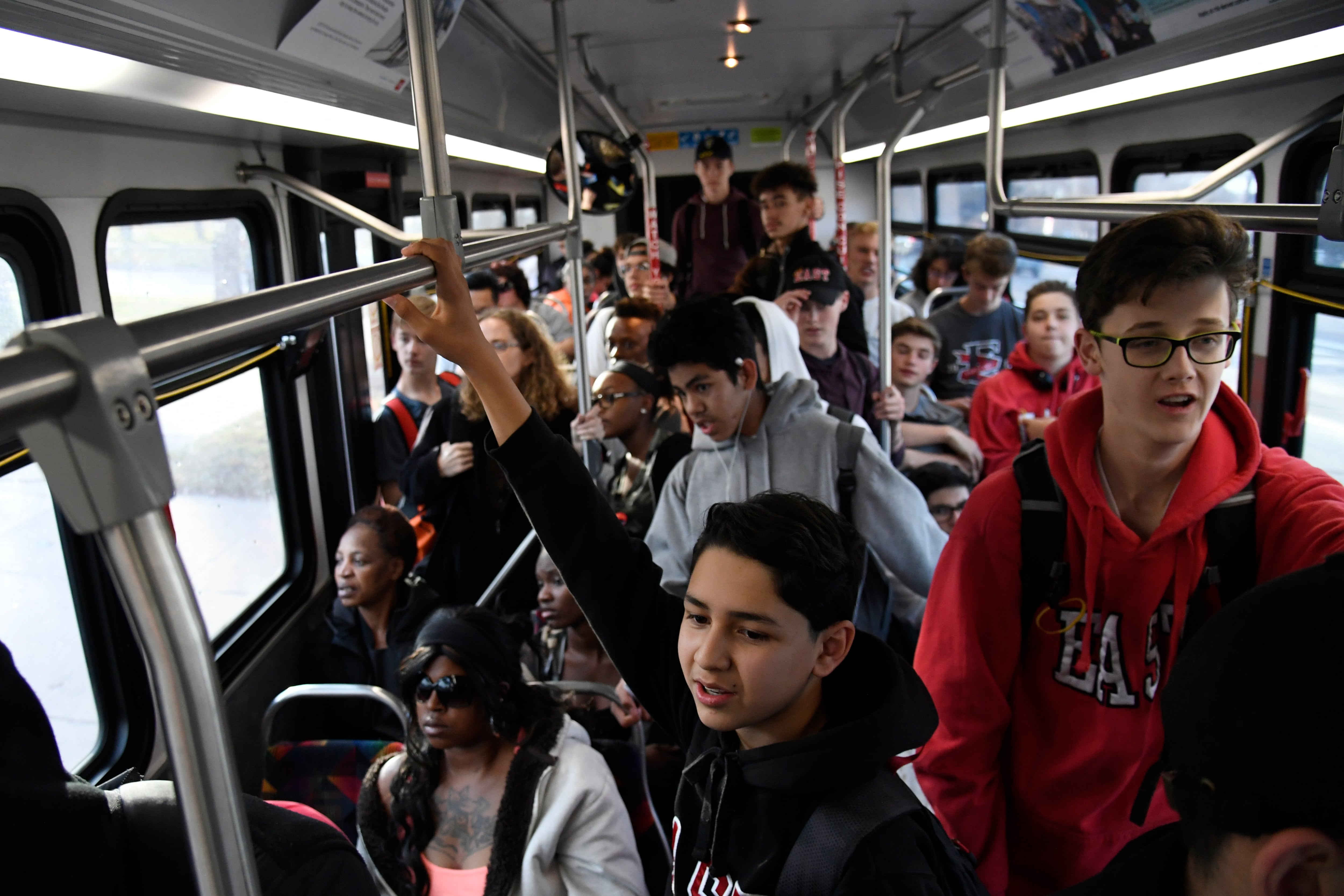Denver-area youth will be able to ride for free to school, the mall, work, and just about everywhere they go beginning Sept. 1 under a new Regional Transportation District pilot program.
The free fares for youth 19 and younger riding buses and the light rail system will start following the conclusion of the RTD’s summer free fares for everyone campaign, designed to encourage the use of public transportation and curb pollution during July and August.
Until recently, youth customers ages 6-19 were eligible for a 70% discount fare and children five and younger could ride free with a fare-paying adult. Now, “youth customers ages 19 or younger won’t pay for RTD services during the pilot program implementation,” according to the RTD website.
The new pilot stems from a broader study on the structure of fare pricing and equity. Prices are going down for most riders and the fare structure is simplified to four price options.
In Denver, most high school students are ineligible for yellow bus service, limiting transportation options for them to get to school. Denver Public Schools pays for passes to ride public RTD buses to and from school, but students must live more than 2.5 miles from their school.
Facing driver shortages and rising costs, the Denver schools have cut bus service for some middle and elementary schools for the next school year and are offering limited service to the Denver School of the Arts. The district must still provide yellow bus service for high school students with disabilities, recent refugees who attend the district’s “newcomer centers,” and English-learning high schoolers in the district’s bilingual programs.
For free rides, drivers may ask kids to show a school- or government-issued ID, according to Bill Sirois, RTD senior manager of transit oriented communities.
RTD plans to collect ride data two ways: transportation operators will key in information on their keypads, and surveys will be sent out throughout the school year. RTD wants to know if riders are taking advantage of the opportunity and if their opinions have changed on using more public transportation.
“We’re excited and we’re hoping for big success. We’ve reached out to a lot of the school districts and got some good feedback in terms of contacts to work with to collect data and hopefully see some good results,” Sirois said.
RTD has projected that it will cost the system $3.5 to $4 million in the next year to offer free youth fares. The youth fare program ends Aug. 31, 2024. To continue the program, RTD officials want other organizations to help fund a part of the project.
DPS did not respond to requests for comment on this story.
Last fall, RTD initiated the CollegePass program which provided unlimited free rides to all students whose universities opted into the program. Colleges paid for it in different ways. Some included a fee into a student’s tuition; other schools footed the bill.
The college program was renewed for another year with the addition of semester passes for higher education institutions that didn’t participate in the CollegePass program. The SemesterPass will be an opt-in program for individual students who use public transportation rather than the institutions paying for the entire student body. The pass costs $75 per student each month.
Sara Martin is an intern with Chalkbeat Colorado. Contact Sara at smartin@chalkbeat.org.





